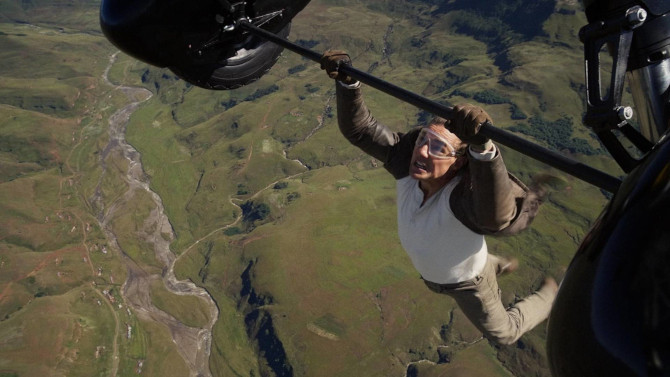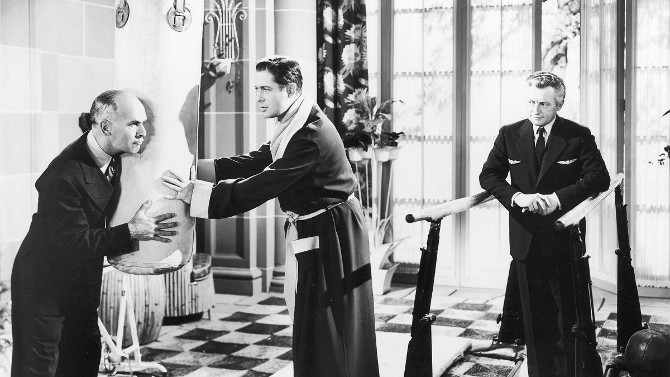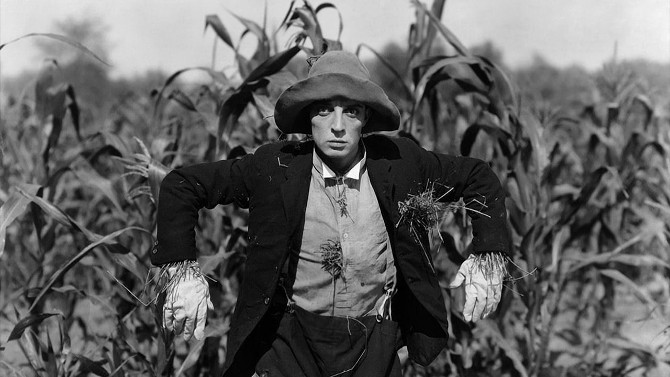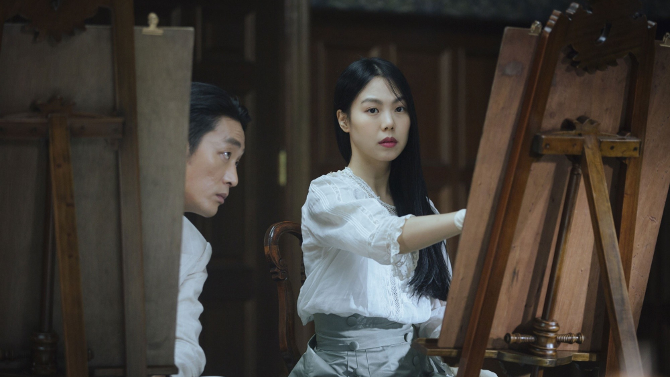
An Impossible Mission
How do you wrap up a franchise like Mission: Impossible? That is, if this even is the final installment... as they’ve made it sound (while at the same time, stars not named ‘Tom Cruise’ pipe up and suggest that might not be so). It has been twenty-nine years, with different writers and visionary directors – from twisty Brian De Palma and the action hair stylings of John Woo, to the lens flares of J.J. Abrams and animation expert Brad Bird, it was only about ten years ago that the franchise decided to opt for The Usual Suspects scribe Christopher McQuarrie for the final four. To return to that opening question once more, you could end with a Sopranos’ style cliffhanger, simply make another entertaining movie like the many before – like Everybody Loves Raymond did it with its final episode, or try to tie everything up in a neat little bow by bringing everything together as the Daniel Craig era did with James Bond. Well, it is definitely more along the lines of the latter example, with some distinct differences.
-
Star Pick with Noah Lang
 Off to See the WizardsWizardsApril 11, 2017
Off to See the WizardsWizardsApril 11, 2017Some time ago, I was fortunate enough to attend a special screening of the Tribeca Audience Award Winner for Best Picture, Here Alone, at an event held by the St. Lawrence International Film Festival in Potsdam, New York. In attendance were director Rod Blackhurst, writer David Ebeltoft and producer Noah Lang. Over the next several weeks, each of their respective Star Picks will be posted (in honour of the release of the film in theatres), each with a lengthy interview that should give you an insight into the world of movie making from three talented up and comers in the industry. Today, I introduce Noah Lang. Son of talented character actor Stephen Lang (Avatar; Don’t Breathe), Noah has had a fruitful start to his career. With a wide array of films to his name already, he also produced another feature that was shown at the St. Lawrence International Film Festival, the well received Band of Robbers, though Here Alone is what I am going to focus on today – as it has solid momentum heading into its release. Lang’s work on the project is detailed quite nicely in the interview, and it will most likely say more that I can say here with the written word, so check it out below. It will give you insight into Here Alone, a clear picture for those unsure as to what a producer actually does, an idea of the complexity of the business, as well as so much more.
-

Air Jordan
Here Comes Mr. JordanApril 9, 2017There may be no film with a more influential pedigree that is lesser known than the fantastical 1941 romantic dramedy Here Comes Mr. Jordan. Honoured with a sort-of-sequel (1947's Down to Earth – starring Rita Hayworth, it also features reprisals from actors James Gleason and Edward Everett Horton. . . which itself inspired the 1980 feature Xanadu), it was also remade by Warren Beatty in 1978 – titled Heaven Can Wait. Chris Rock had a go with the subject matter in 2001 with his version, Down to Earth – reusing the title from the original sequel. In 1968, it was even remade in India – Jhuk Gaya Aasman – English translation: The Skies Have Bowed. At one point, even Bill Cosby tried to get a version of the story produced – though this iteration fell through. The intensely bitter and sweet tale of a boxer who gets in a plane crash, which is followed by a mistake in Heaven, it can also be seen as the precursor and inspiration for motion pictures like A Guy Named Joe (1943), It’s A Wonderful Life (1946), A Matter of Life or Death (1946), The Ghost and Mrs. Muir (1947), as well as so many others. Mashing together a multitude of genres which I will explain later, the boxer, Joe Pendleton (Robert Montgomery), who is soon to be competing for the world title, is gearing up for his next big bout. Trained by his loyal manager, Max Corkle (James Gleason), the two argue over the fact that he wants to fly himself to his next fight in New York City. Unable to convince the genial but stubborn athlete, it is soon after that he plummets to his ‘supposed’ death.
-

Lost. . . in the Adirondacks
Here AloneApril 7, 2017Filmed in the heart of the Adirondacks in New York State, Tribeca Film Festival Audience Award Winner Here Alone utilizes its locale to great effect. Capturing its rich vivid landscapes, be it rolling hills and mountains or lush forests surrounding a still lake, screenwriter David Ebeltoft and director Rod Blackhurst juxtapose the idyllic setting with a sense of loneliness, loss and secluded dread. Though at first glance, Here Alone may resemble your typical zombie flick, it is, at its heart, a searing character drama, while the infected flit around the periphery. Our main character is Ann (Lucy Walters), a young woman living by herself in the middle of a leafy forest which surrounds a chilly lake. The first portion of the motion picture plays like a taut, tense silent film, as we witness her struggles to survive. Lacking food, fighting the elements and struggling with her own pained past, she is utterly alone. By way of flashbacks, we are introduced to her baby girl and her survivalist husband Jason (Shane West), the one who brought her way out into the woodsy setting to survive. We slowly learn their fates over time.
-

Elle est Magnifique
ElleApril 4, 2017One of the most buzz-worthy performances of this past Awards season, Isabelle Huppert’s multi-dimensional turn as rape victim Michèle Leblanc in the French film Elle, directed by PaulVerhoeven, led to a wide array of nominations and wins, with her taking home the Golden Globe for Best Dramatic Performance but ultimately losing the Oscar to Emma Stone. The film also took home Best Foreign Language Film at the Globes. Beginning with the intense, jarring end of the horrific rape (the only witness, her less than helpful cat), Michèle (Huppert) doesn’t hysterically scream or phone the cops after her masked assailant has departed, but quietly cleans the mess left by the attack (and then herself) – simply returning to the normalcy of her life after doing the tasks.
-

This Scarecrow has Quite the Brain
The ScarecrowApril 2, 2017I often wish the studio system would turn back time (in a sense) and begin to focus on developing short films again. A wonderful way to cultivate and produce young talents (think Charlie Chaplin or The Three Stooges), it also provides the audience with fun, brief excursions into fantastic worlds before even delving into the main feature. Comedy, drama, horror and even action work nicely in shortened versions, which is why I like to highlight certain pint-sized motion pictures from time to time – today, we will look at Buster Keaton’s 1920 comedy The Scarecrow. A premier example of ingenuity and the genius of motion, the nineteen minute tale follows two farmhands (diminutive Keaton and the much larger Joe Roberts – another example of the ever-comical combo of fatty and skinny) as they vie for the hand of the youthful and pretty farmer’s daughter (Sybil Seely). The two room together in a house of contraptions – the record player seconds as a stove, bed as a solid wooden piece of furniture/piano, bathtub as a settee and so on. Perhaps even more impressive is their dinner table design – ropes hang from the rafters on pulleys, meaning that everything from salt and pepper to food and beverages are attainable from anywhere at the table (Keaton had originally developed a similar mechanism at their family’s summer home when he was just a child). When done, they have a speedy way to do the dishes as well – afterwhich the ropes disappear and a light fixture descends from the ceiling. It is a spy’s house without the spy.
-

The Handmaiden’s Tale
The HandmaidenMarch 31, 2017Director Chan-wook Park, a visual mastermind who concocted the intoxicating Stoker in 2013 (a loose remake of Alfred Hitchcock’s superb Shadow of a Doubt), his first, and to date, only English language film, follows it by putting his talents into making another striking, intricately plotted psychological mystery/thriller in The Handmaiden. Loosely based upon Sarah Waters’ novel "Fingersmith", the filmmaker moves the tale from Victorian era England to 1930s Korea – which is under Japanese colonial rule. Divided into three parts, he utilizes the technique to great effect, providing us with only part of the story each time. In many ways it’s like being given a puzzle with only the edges to start with, so we think we understand what is going on, as we have been given the outline, but only truly gain a stronger appreciation of its complexity and beauty when provided with the pieces that fill in the whole picture. Park’s unique style slowly divulges the true essence of this film by providing alternate angles, different perspectives, flashbacks and flash forwards (those essential remaining puzzle pieces).

